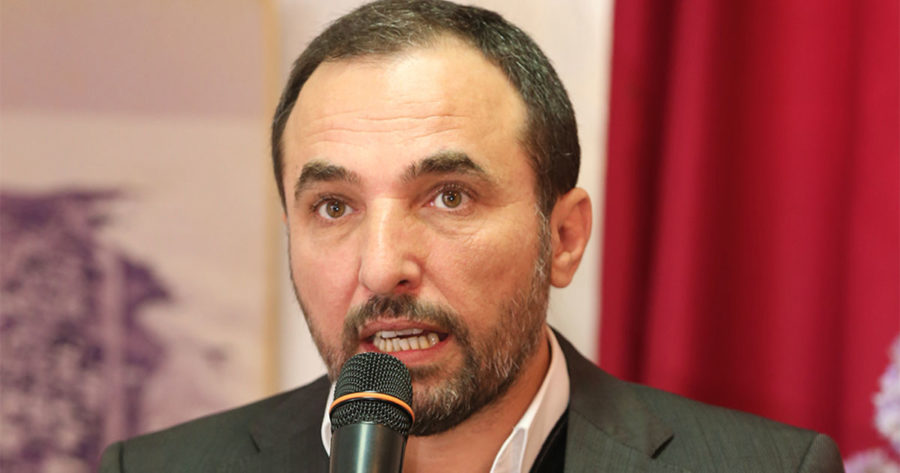
The disagreement over the formation of a government in Lebanon is not about the dispute over matters such as who should exclusively have weapons and it’s not related to the extent of the execution or non-execution of the policy of dissociation from regional crises in the Arab world. The dispute is also not about whether Hezbollah fighters should retreat from Syrian territories or not.
Everyone is trying to book their seats in the new government. However, the formation process is still subject to opposite demands among several political parties regarding the quotas. Despite the optimistic statements during the past five months about the cabinet formation, the government hasn’t been formed to this day.
Decommissioning no longer an issue
The division and the disagreement are no longer connected to issues raised by the March 14 Alliance, which have now fizzled out, such as the slogans of sovereignty, independence and placing Hezbollah’s weapons under the authority of the state. They are no longer related to what the March 8 Alliance called for, such as keeping Hezbollah’s weapons until the establishment of a fair and powerful state, as Hezbollah officials claim – even though everyone knows that the fair state cannot come into existence in the presence of both legitimate and illegitimate arms and the duo of the state and the “statelet”.
These issues no longer stand in the way of forming a government or delay forming one as was the case in previous years and since 2005 as back then, efforts were focused on finding an appropriate settlement for all parties in the formulation of the Ministerial Statement. Today, neither Prime Minister Hariri demands a solution over Hezbollah’s weapons nor does Lebanese Forces Party Samir Geagea demands the withdrawal of Hezbollah from Syria or the implementation of international resolutions on this matter. This concession on the sovereignty level by those who were part of the sovereign party in power, or the so-called March 14 Alliance, did not facilitate the process of managing the affairs of the state and the formation of the government.
Everyone knows that the so-called “settlement” that made Michel Aoun president two years ago included placing controversial files with a regional dimension aside, namely Hezbollah’s weapons and its participation in the Syrian war. This was done to avoid the delays in governance and civil administration. In spite of the neutralization of these highly important issues related to sovereignty, the situation has remained stagnant as they remained incapable of doing both, forming a government and managing the state’s affairs with the minimum level of efficiency and responsibility. As sovereign matters were marginalized, political parties developed a strong appetite to dominate whatever they can attain from public money.
When political life is marginalized from addressing national issues, or when there is a conspiracy to neutralize it, like what happened when Michel Aoun became president, it becomes impacted with a fundamental flaw in favor of different agendas in the conflict that can be summarized through the fight to acquire quotas whether in the cabinet or public sector. The competition is now about who can appoint the biggest number of his followers or loyalists to public posts, while eliminating the principle of efficiency, abolishing equality among citizens and promoting favoritism in the public sector which has thus become burdened with tens of thousands of unproductive employees, full with corruption and incapable of performing its role.
Blatant corruption
Not only this, in the absence of political life, political forces are looking for benefits by fighting over deals in the electricity and oil sectors. The fight over garbage disposal remains a striking example on the sharing of benefits through dubious means, by coming up with fake projects or projects that cannot be executed. Such projects aim to worsen the crisis in order to keep the trash issue a source of looting the public treasury.
Even the Lebanese University has been subjected to violations which have harmed its academic performance. It has transformed from a university largely subject to academic authority into a domain of sharing influence among the authority powers. University appointments as well as access to its academic space are determined by the principle of quotas and not academic accomplishments. Thus, the university has lost its academic and national role.
This is the tip of the iceberg of Lebanese political life, which has become captive to the logic of quotas and benefit-sharing, after neglecting major national issues related to the concept of state, national identity and unity of the people.
When the concept of sovereignty is marginalized and destroyed and when this is acknowledged and accepted by the authorities’ powers, when calling on official military and security forces to protect the state becomes national treachery, when public money is plundered by the parties of power in an organized and deliberate manner andwhen the conditions of citizenship do not require the application of law, then the state will be in a flawed and violated situation and it will be deprived of its will.
Duality of power
If some people in Lebanon consider or even believe that there is a possibility of building a state in the absence of basic concepts and framework for the establishment and progress of any state, then they must realize today that this is false and destructive for the existing state as well.
A state cannot survive if it remains captive of the duality of the state and the statelet or of the legitimate- illegitimate weapons’ duality, or rather a captive of the dual loyalty to the state and an outside power. In a country whose authority allows itself to be ruled by those who are loyal to an external state (as in the case of Hezbollah) more than they’re loyal to their own homeland, disaster cannot be avoided, and this is what Lebanon is suffering from today.
Without going back to the basic principles of the state and without the establishment of a political life based on the condition of sovereignty and independence, this paralysis will not be limited to the inability of forming a government but it could also lead to the collapse of the political and social life as well as financial and economic collapse which appears highly imminent as acknowledged by the authority parties in Lebanon before citizens, who feel the noose tightening around them, even acknowledge that.

